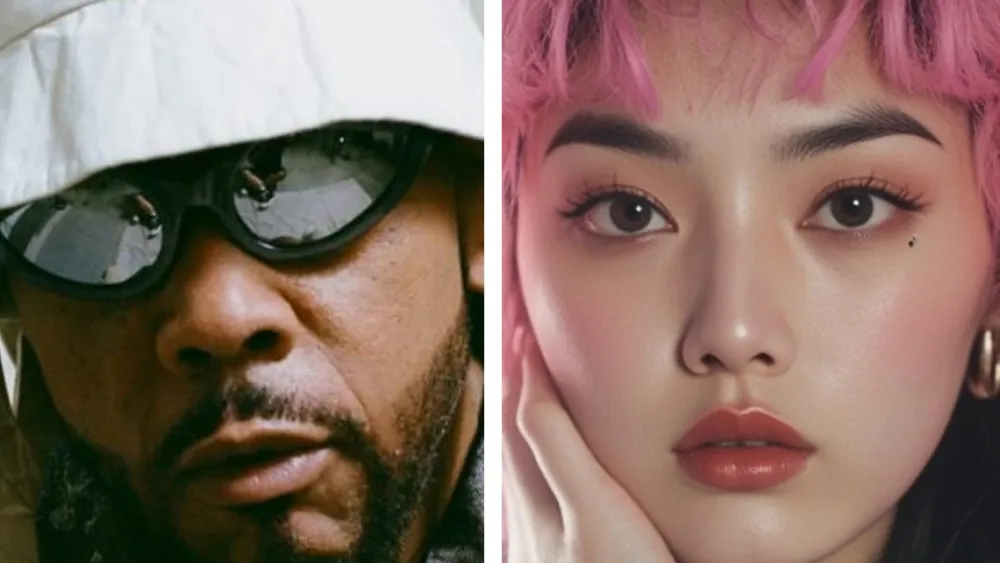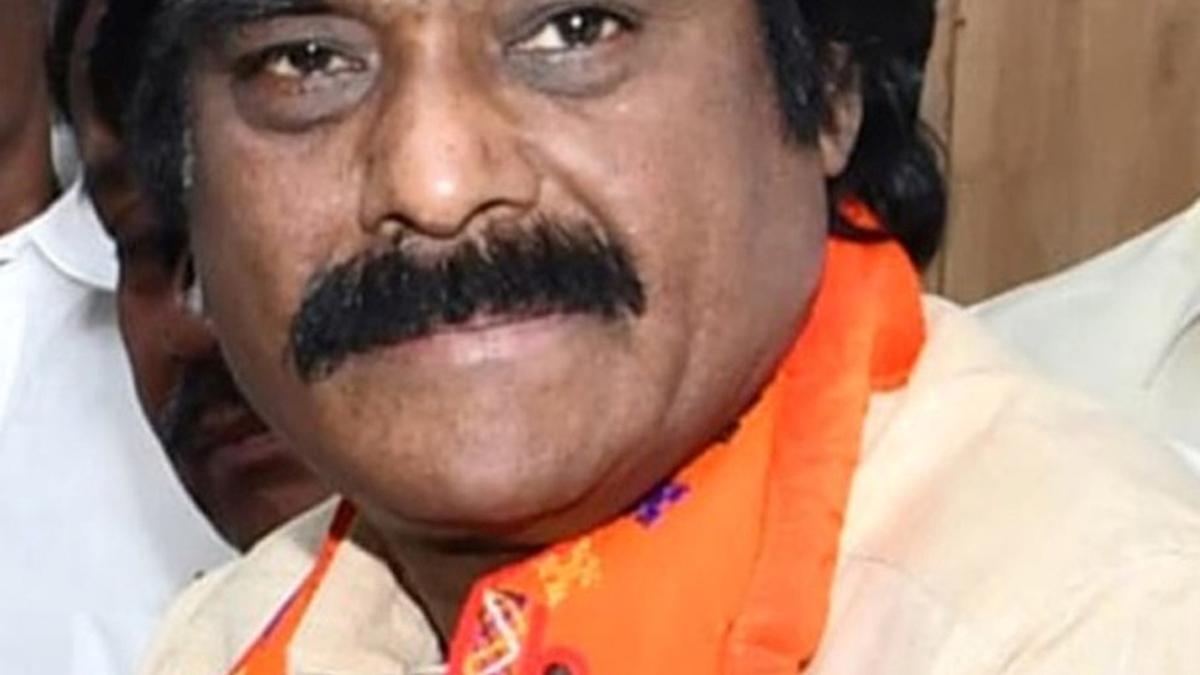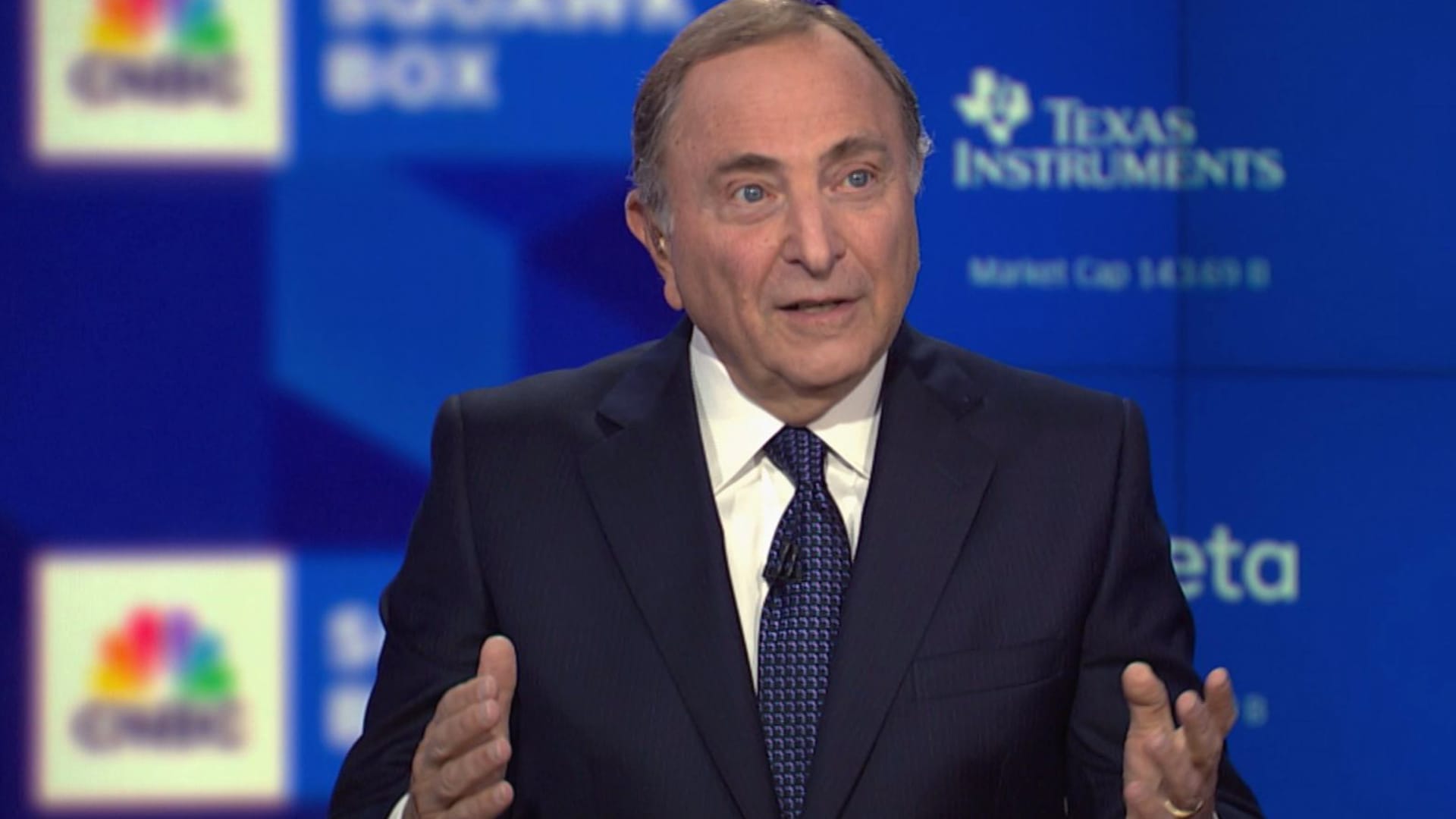
With hits by Missy Elliott, Justin Timberlake, Jay-Z, Aaliyah, Madonna, Michael Jackson, Beyoncé, Rihanna and many more, Timbaland is one of the most influential and successful hitmakers of the last 35 years. His sound is often called futuristic, and he’s always embraced new technologies — during the pandemic, he and Swizz Beatz created Verzuz, the rap/R&B battle webcast series, and later he launched Beatclub, a curated platform for producers and songwriters to sell beats, demos and other song elements.
But something happened back in June, when he got so excited about his new projects around AI that he posted a snippet of one of them. Some people got upset about his embrace of the technology, and in response he posted a different video, where AI-generated animals are criticizing people who criticize AI.
“Autotune is AI baby, y’all just didn’t complain until it started writing better hooks than you,” one animal says. People got even more upset — some wrote editorials about it — and seemed to feel it was a betrayal.
In one sense, the reaction is understandable: everyone is concerned about AI taking away their livelihood, musicians more than many. Veteran engineer Young Guru wrote to Timbaland on Instagram, “Your voice is powerful and way too important to do anything like this. These are the times, right here, that history is defined. Human expression can never be reduced to this!!!” Making matters worse, on the demonstration video, Tim used a beat that he thought his collaborator had created, but was actually made by producer K Fresh, who called him out on social media for it. (Timbaland, who generated no revenue from the post, explained the situation and apologized.)
Perhaps the ideas weren’t fully formed just yet, and obviously Timbaland didn’t state what he meant as clearly as he could have — but he’s setting the record straight here.
“You gotta remember — it’s still me,” he clarifies, as part of a long conversation below, about AI and his new Stage Zero company, as well as a deep dive into classics from own catalog with Aaliyah, Missy Elliott, Jay-Z and others, and current projects and artists he’s inspired by. “You still need the human element. I just use AI to add other elements to my music. It’s 80-85% human.”
But first, we should define what “it” is. Timbaland’s multifaceted new AI entertainment company, co-founded with his business partners Rocky Mudaliar and Zayd Portillo, is called Stage Zero and its first project is TaTa (pictured above right), who releases her first single on Friday — although “her” is bit of a misnomer, as TaTa is described as “the world’s first AI-native pop artist.”
The company consists of three divisions: Live AI Entertainment; Stage Zero Music Network, a destination where AI and traditional music videos will be played 24 hours a day; and a record label. We’ll let him take it from there.
Do you think most people who criticized your enthusiasm about AI weren’t really clear on what you meant?
Yeah. I think generative AI music is when people prompt certain things, “I want jazz, funk,” whatever, and because it’s a powerful tool, it can generate music. But that’s the same thing as a person turning on a keyboard and hitting the “demo” button [which prompts pre-recorded music] and being like, “I played that.”
I don’t generate music like that, because you still need the human element. So I just use it to add other elements to my music. I still have to think about it and build it, and then use the tool to add on.
I think people did misunderstand that — like, I don’t use chat, but I know that if you don’t ask it the right questions, if you don’t know how to talk to it, you’re not going to get the right answer. It’s the same thing with music: If you don’t know music — and you don’t know a quarter note, third note, a break, a bridge — you’re not going to get what you’re looking for, and your taste is key. If you don’t have great taste, you’re going to get what they call “AI slop.” But if [it’s used by someone] great, you’re going to know the difference. You have to use [AI] as a collaborator, not as a creator.
Can you describe basically how the process works for you and how you’re using it?
When I create a beat, so I’m still doing it on my ASR and Ableton [technology]. The difference is I can now upload my beat and say, “I need these warped strings, rrrrt, rrrrt” — I can hum it, and the AI will give it back to me as I hummed it. That’s the beauty of the tool — I’m still using musicians, but I can also go, “Those strings need to be a Mellotron 1970 Chinese monotone” or whatever, and it’s gonna give it back with that. And then I just take that as a stem and put it on my original beat.
Is that how you work with TaTa’s music?
[Enthusiastically] TaTa’s gonna shock the world, man. I don’t want to give too much away, but it ain’t what people think. I’m making a franchise — it’s I.P. [intellectual property], and the new label, Stage Zero, is really like Walt Disney in music. I’m blurring the lines — TaTa is a very unique thing. The video is 85% human-made, I’m only using AI maybe 15% or less.
Both the song and the video are only 15% AI?
Yep. I’m scaling up — reimagining what the music industry can be and what you can do with all these tools. And I have other characters. The biggest one is Mr. Crown — a robot DJ. I have a whole team creating this. Stage Zero is like a new [kind of] entertainment of characters and I.P. But I think people will see, “Oh OK, he ain’t just pushing a button.”
There are three different components of your new company: Live AI, Music Network, and the label. What’s Live AI?
Robotics are going to be the biggest thing coming next year, and we’re already working on the LLM programming for the first robotic DJ. So when a DJ goes up, I control it — it knows how to mix and blend, and I can be in the background. It’s a platform where Mr. Crown is going to be DJing all the time, but also, we’ll go out in real life — we could DJ your party.
What exactly is the Music Network?
The Music Network is all AI videos on one in one hub, a network where it’s running for hours like a roku. There’s so many AI music videos, and I want to have contests where people submit videos. We’ve got Culture Genesis involved in how it gets paid on YouTube.
And how is the label going to work? Is it just an ordinary label with AI artists, or is there AI involved in the label itself?
It’s going to be I.P., creators, characters, real people creating characters… music, film, gaming: You can put these AI skins and [characters] into like so many different things, videogames, fashion. I can’t really talk about it yet, but we’re in talks with two companies that distribute music.
So when you’re making TaTa songs, is the voice generated or is that a singer?
It’s half and half: half human and half persona. But even with the persona, it’s more like I created it with the tools, you know what I’m saying? ‘Cause with everything, I go by tone. And when I find a certain person with the right tone, I can create it starting with the AI, but then add on: “Hey, come in here and put this vocal on top,” to add a more human element.
So who’s the singer for TaTa?
I can’t tell you now, I’m going to let the world find out all at once.
But how does the process work? Does the singer sing the entire song and then you redistribute where a verse or chorus or certain words might go?
Yeah, they sing it but then I use the tools to blend it together. I’ve been working so much with the tools and creating my own personas that it’s like… it’s crazy because I don’t want to say that the computer is singing, but it’s singing to how I created it, if that make any sense?
So if that much of the work you’re doing is actually human-created with just an assist from AI, why are people getting so upset?
Because they don’t understand that assist. I think the tool is so powerful, and the prompt comes out so good, that it scares people. But if you’re a musician, you’ll hear [something generic] and know it’s AI slop. But if you’re great, what you create with AI is going to be great too, and [musicians] will be like, “Whoa, that’s how you create with this.”
You gotta remember — it’s still me. And you still need great people and great musicians to operate this thing.
When did you start working with these tools, and when did you start to realize the potential?
People and companies came to me about it a couple years ago, and at first I was like, “Text and music? What the hell are we talking about here?” But then I remembered when computers came into the game, and I was an analog guy. I felt old — I wasn’t evolving.
So when it comes to these tools, [eventually] I said, “I need to start learning this.” So my [business] partner Rocky told me, “Just talk to it.” I said, “But I talk funny — my dialect of explaining music is different.” But my other partner, Zayd, was like, “Just talk how you would talk in the studio.”
So I started working with it: “I want to add some strings to this track, Arabic melodies, blah, blah, blah.” It didn’t dial it in completely, but it damn near got close. And the more I used it, started understanding how I talk and the music [shorthand] of what I was saying.
Has it freshened up your creativity?
Oh man, I feel like I’m 19 again. No producer can see me right now, and I stand on that. What I and other great producers can do, like a Danja —all of us together with this tool, we can’t be stopped.
Are other producers joining you?
Oh, you’ll be surprised.
The inspiration that you’ve had working with Missy or Justin Timberlake or Aaliyah, do you still have that spark of collaboration using these tools?
Man, I think I have it even more. Because when I go to present something, I can prompt it instead of like back in the day, when I would pull up CDs or records and start sampling and chopping up. But now I can hum the sound I’m looking for [makes awesome, classic Timbaland put-chee put-chee put-put-chee beatbox sound with his mouth]. A lot of times I have it in my head but I have to go search for it, because I’m like, “Damn, this is not what I’m hearing in my mind.” But now I can do it right there on the spot.
So when Missy says, “That ain’t it,” rather than me being shot down — like, “Damn, I just spent eight hours on this and you tell me it ain’t it?” and then I gotta get motivated again — instead, it’s like, “All right, what about …” and just hum it into the mic.
If you have a collaborator on a song that you’re working with like that, do they get royalties as well?
Yeah, one thing I do that never changes: Anybody I work with on these records, we still split the publishing the same.
You’ve been a high-profile music maker and innovator for 30 years. Especially for someone whose sound and ideas have been so often called futuristic, how do you keep moving ahead?
I’m not gonna lie: That’s why I take the bullets and the backlash on this. Me jumping out with that announcement like I did, I was like, “I don’t know how to really explain this, but I haven’t been this excited in a long time.” I’m not sure I was ready, but if you truly believe in something, you just got to ride it out.
And I understand it, because we live in a world with so much going on, and you hit people with this and they’re like, “Oh my God, music is over.” Some of the things I saw out there, like, “Tim, please don’t stop working with humans.” There’s so many humans I’m working with! I got an album coming out with all independent new artists — but I’ve also got this.
It’s funny, I was talking to Damon [Albarn] about Gorillaz [the animated band that the Blur frontman writes and produces music for], and I’m like, “Yo, this is the perfect time to scale what y’all started.”
Looking back at your career, which songs do you think were your real big breakthroughs as a producer and songwriter? Personally, I think it’s “Are You That Somebody?” because it’s got so many different elements in it — it’s a great song, but you’ve got the strange beat and the sample of the baby cooing. Nobody had really done that and made a song out of it.
I’ll say that one, like you just said it, and “Pony” [by Ginuwine], “Work It,” “Get Ur Freak on” [both by Missy Elliott], “Sexyback” [Justin Timberlake], “Promiscuous” [Nelly Furtado], “Apologize” [with OneRepublic] and “Big Pimpin’” [Jay-Z]. Monumental records, creatively, that really changed the game for me.
What is it about those songs, and did you know it at the time?
The artists allowing me [to be innovative], and them understanding my cook-up. Because “Are You That Somebody” has a different cadence: So many stop-pulls, stop-pulls [in the rhythm] — because I play around in the middle, the polyrhythms. How do you dance to that? What artist is going to write to that? What writer could write to that? Only [co-writer] Static Major, rest in peace. Our team was so legit — they understood Timbaland, so any craziness I presented, they could write to.
And “Big Pimpin’,” I was challenging Jay because I knew the flute [sample] was something different. I said, “Ain’t no way in the world, but I think it’d be crazy if he figured it out.” And he understood it.
What about Nelly Furtado’s “Maneater”?
I was trying to capture Hall & Oates. I was telling [coproducer] Danja, “We got to capture the ‘80s with the 2000s, where the chorus is big and the verses are very simplistic, minimalist.”
What’s inspiring you now?
The same people who inspired me back then. I love Radiohead. I love, what’s that rock band, Grand Van Fleek?
Greta Van Fleet? Really? What do you love about them?
His voice! His tone. That’s why we love artists the way we love them, because it reminds us of somebody that we’ve heard before. Like in “Sinners,” Michael Caton, the guy singing on that. If you’re older, he reminds you of a blues person from back in the day.
Everybody don’t have a great tone. Billie Eilish’s tone is incredible — she’s mastered the haunting whisper tone. And the way Finneas has got her sounding in that mic? People don’t understand it’s an art to this. Like if you find great tone, it’s all about a feeling, and the feeling comes from the tone. Why is that person your favorite artist? What really what grabs you is that tone, and people don’t even realize that. There’s a lot of singers out here, but who is grabbing you?
That new independent artist, Mk.gee, I love his tone. Dijon too. They don’t sound like everybody else, they have that different intonation sometimes, and they don’t worry about trying to be perfect. The imperfection is perfection.
The reason why Teddy Swims [first] resonated was because he sang [Journey’s “Don’t Stop Believin’” on “America’s Got Talent” in 2022]. When he sang that song, everybody’s mouths dropped. He was already sounding like that, he had put out records, but y’all hadn’t heard it. Sometimes [singers] got to say, “Let me tell you all who I really am by singing your favorite song.” Then you understand that this person’s tone is undeniable.
Like, Giveon’s tone is undeniable — ain’t nobody sound like that. There’s so much music out there, but he cuts through because his tone don’t sound like everybody else in alternative R&B. Giveon gives you his soul.
You know “Stranger Things,” right? So me and my daughter was watching it and Kate Bush’s song “Running Up That Hill” came on and I jumped up, like, “Whoever put that in this show [is brilliant].” My daughter was looking at me and I said, “This is going to be your favorite song. This is going to be the biggest song on TikTok, guaranteed, I’ll bet you right now.” She was like, “I don’t know, Dad.” But as the show kept going, she was like “What was the name of that artist?,” and then the next day, “Dang dad, you was right.” Greatness never goes away.
You know, the hardest thing when it comes to making music is how to be simple and great. You can always be complex, but how do I be simple and make it feel like a masterpiece? So I started even doing studies on my own stuff: “Get Ur Freak on” had three sounds on it, but it felt like twenty.
See, 30 years of doing things a certain way and not elevating my style would be a discredit to who I am. The point of being a disruptor is to keep disrupting.
But isn’t that difficult? You could argue that almost all of the greats, even Prince, only had 10 years of real greatness.
Yes. The innocence of what you came in it to do has gone — the business comes in and it dilutes your thought. You’ve been doing it for so long by yourself, and life and everything can take a toll and take away from the thing that you originally loved to do.
So when that happens, you have to put on others — which a lot of people don’t like to do. But Michael Jackson did — he put on Rodney Jerkins when he was searching for that spark. And Prince, rest in peace, I think maybe part of his demise was that he did everything himself. I don’t think he really collaborated with nobody, and how long is that going to work?
It was the same thing with me. I produced Missy, Aaliyah [and many others], but then I brought in Danja, because I knew I was tapped. Ten years in, [critics] was like, “Oh man, I don’t know if Tim’s got it no more.” I needed some inspiration — somebody else, another brain, another thought process, a challenge. I needed a co-pilot — I can’t keep flying this plane by myself.
And when I brought on Danja, it was like, “I ain’t heard that, and he’s playing the way I like it.” Oh man! It made my beat patterns get better. It gave me a rejuvenation — and I came back with [Timberlake’s] “FutureSex LoveSounds” and [Furtado’s] “Promiscuous,” all back-to-back.
But that wasn’t just me — that was me knowing that I needed help. And then [several years later, for Timberlake’s] “20/20 Experience,” I brought in [co-producer] J-Roc. And that’s the whole beauty about music: For the most part, I think it’s best to collaborate, and put your ego aside and see what you can build together. Don’t get twisted, I’m still me, and of course then you got to worry about that person on the other side, where they at. But it should wake you up, and then you on.
I’ve never felt this great about doing music, and I can do it on both sides, whether working with an artist or doing my AI projects or whatever else.
People are going to be slow to the party. Like they were slow in the dot-com days, and when they got in, the person that made all the money off of it was like, “Y’all too late. Y’all were criticizing instead of getting in.”
Not me — I’m in the party.



